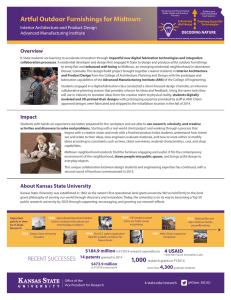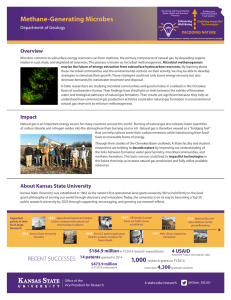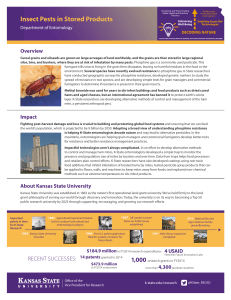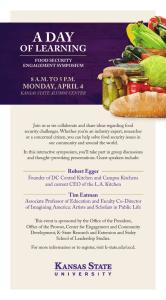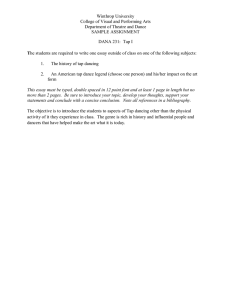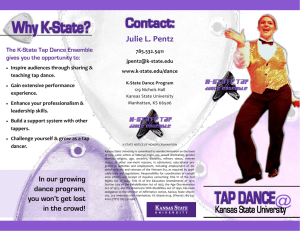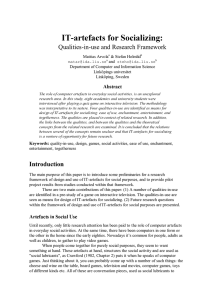Tap To Togetherness Overview
advertisement
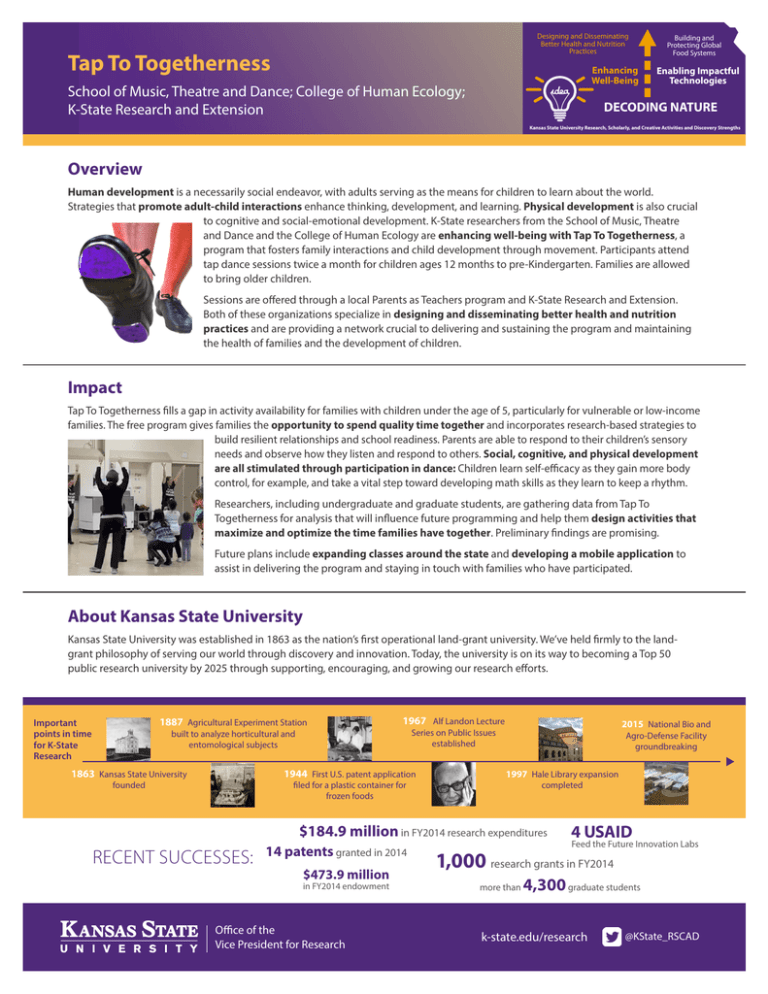
Designing and Disseminating Better Health and Nutrition Practices Tap To Togetherness Enhancing Well-Being School of Music, Theatre and Dance; College of Human Ecology; K-State Research and Extension Building and Protecting Global Food Systems Enabling Impactful Technologies DECODING NATURE Kansas State University Research, Scholarly, and Creative Activities and Discovery Strengths Overview Human development is a necessarily social endeavor, with adults serving as the means for children to learn about the world. Strategies that promote adult-child interactions enhance thinking, development, and learning. Physical development is also crucial to cognitive and social-emotional development. K-State researchers from the School of Music, Theatre and Dance and the College of Human Ecology are enhancing well-being with Tap To Togetherness, a program that fosters family interactions and child development through movement. Participants attend tap dance sessions twice a month for children ages 12 months to pre-Kindergarten. Families are allowed to bring older children. Sessions are offered through a local Parents as Teachers program and K-State Research and Extension. Both of these organizations specialize in designing and disseminating better health and nutrition practices and are providing a network crucial to delivering and sustaining the program and maintaining the health of families and the development of children. Impact Tap To Togetherness fills a gap in activity availability for families with children under the age of 5, particularly for vulnerable or low-income families. The free program gives families the opportunity to spend quality time together and incorporates research-based strategies to build resilient relationships and school readiness. Parents are able to respond to their children’s sensory needs and observe how they listen and respond to others. Social, cognitive, and physical development are all stimulated through participation in dance: Children learn self-efficacy as they gain more body control, for example, and take a vital step toward developing math skills as they learn to keep a rhythm. Researchers, including undergraduate and graduate students, are gathering data from Tap To Togetherness for analysis that will influence future programming and help them design activities that maximize and optimize the time families have together. Preliminary findings are promising. Future plans include expanding classes around the state and developing a mobile application to assist in delivering the program and staying in touch with families who have participated. About Kansas State University Kansas State University was established in 1863 as the nation’s first operational land-grant university. We’ve held firmly to the landgrant philosophy of serving our world through discovery and innovation. Today, the university is on its way to becoming a Top 50 public research university by 2025 through supporting, encouraging, and growing our research efforts. 1887 Agricultural Experiment Station Important points in time for K-State Research 1967 Alf Landon Lecture built to analyze horticultural and entomological subjects 1863 Kansas State University 1944 First U.S. patent application founded filed for a plastic container for frozen foods 2015 National Bio and Series on Public Issues established Agro-Defense Facility groundbreaking 1997 Hale Library expansion completed $184.9 million in FY2014 research expenditures RECENT SUCCESSES: 14 patents granted in 2014 $473.9 million in FY2014 endowment Office of the Vice President for Research 4 USAID Feed the Future Innovation Labs 1,000 research grants in FY2014 more than 4,300 graduate students k-state.edu/research @KState_RSCAD
